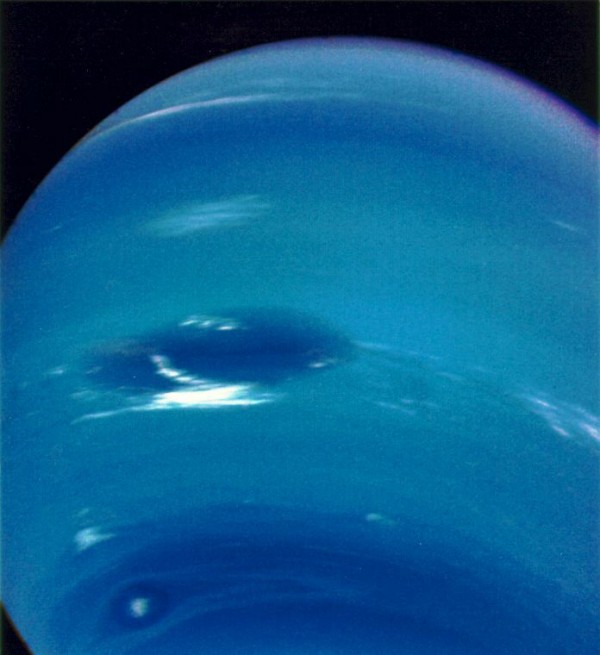There are so many interesting bits of space stuff floating about the Innerwebz this week! Planets and moons and asteroids (with moons?!), oh my. Here’s brief rundown of each with links to in-depth articles if you’re of the space geek set.
Our Eighth Planet is so Grown-Up!
Tomorrow, June 12, we celebrate Neptune’s first birthday. The planet was discovered on Sep 24, 1846, the eighth planet will only just complete its first revolution of the sun — 164.79 Earth years in the making. The discovery of Neptune was no accident, as was the case with other planets. We can thank Uranus for giving us a bit of a heads-up; its orbit is so strange that astronomers had to decide whether Newton’s laws were wrong or that something else–something big–was pulling Uranus out of its expected orbit. BBC News has a great article detailing the discovery, along with lots of geekery regarding all the info we’ve discovered in Neptune’s first year.
Mark Titan Off of the “Ideal Vacation Spots” List
What’s summer like on Titan? Saturn’s weird moon sports black and red rainbows, heavy smog and violent storms. There are lakes to take a dip in, but they comprise mostly ethane, and it’s only about -180ºC, so maybe you shouldn’t try to swim after all. Thanks to the Cassini mission and the Huygens lander, the scientific community knows quite a lot about Titan; you can too if you check out New Scientist’s profile on Titan’s Uncanny Moonscape.
Well, That’s Personal
What do astronauts do while they’re in space? And what happens to their social lives, families and “me-time”? The LA Times has an interesting look at the personal lives of astronauts aboard the ISS. (Bonus: creepy retelling of a spacewalk.)
We Don’t Need No Stinking Science
Not everyone is as enthralled with the Universe as we are. Specfically, we’re talking about the House of Representatives Appropriations Committee, which proposed terminating funding for the James Webb Space Telescope. (I’m not going to lie.; this geek shed a tear at the thought.) The most complex space observatory ever conceived–and successor to aging grandpa Hubble–has been under construction since 2004, and NASA won’t go down without a fight. The Guardian reports on the ongoing battle.
Vesta’s Possible Moon
Since 1994, we’ve had evidence of natural satellites orbiting asteroids; an image of Ida and her moon, Dactyl, confirmed what seemed a likely but bizarre condition of extraplanetary bodies. Everything gets a moon! Now as the Dawn spacecraft approaches the asteroid, researchers are looking closely for Vesta’s sisters, should they exist. The mission isn’t solely to discover asteroid moons, though; Dawn’s primary objective is to build a global map of Vesta and record its topography. The details are in PhysOrg’s recent piece on Vesta.
Can Colbert and Stewart Save the Final Frontier?
With the space shuttle Atlantis seeing its final launch last week, questions about the space program’s future are everywhere. What’s next, if not the James Webb? Veteran astronauts and NASA officials are making appeals to the President for an extension, but Lauren Feldmen of American University, Anthony Leiserowitz of Yale University, and Edward Maibach of George Mason University have what they think is a better plan: enlist the help of Stephen Colbert and Jon Stewart. For the record, I am not opposed. The team’s report at the Annual Meeting of the International Communication Association last May asserts that “satirical television news appears to be on par with or even exceed its traditional television news counterparts” in regard to its impact on public awareness of science and technology. Can Comedy Central save science?
We’d love to hear your thoughts on this last piece especially, but if you Sexy Geeks have other space news you think we need to know, drop a link in the comments!
[image]

